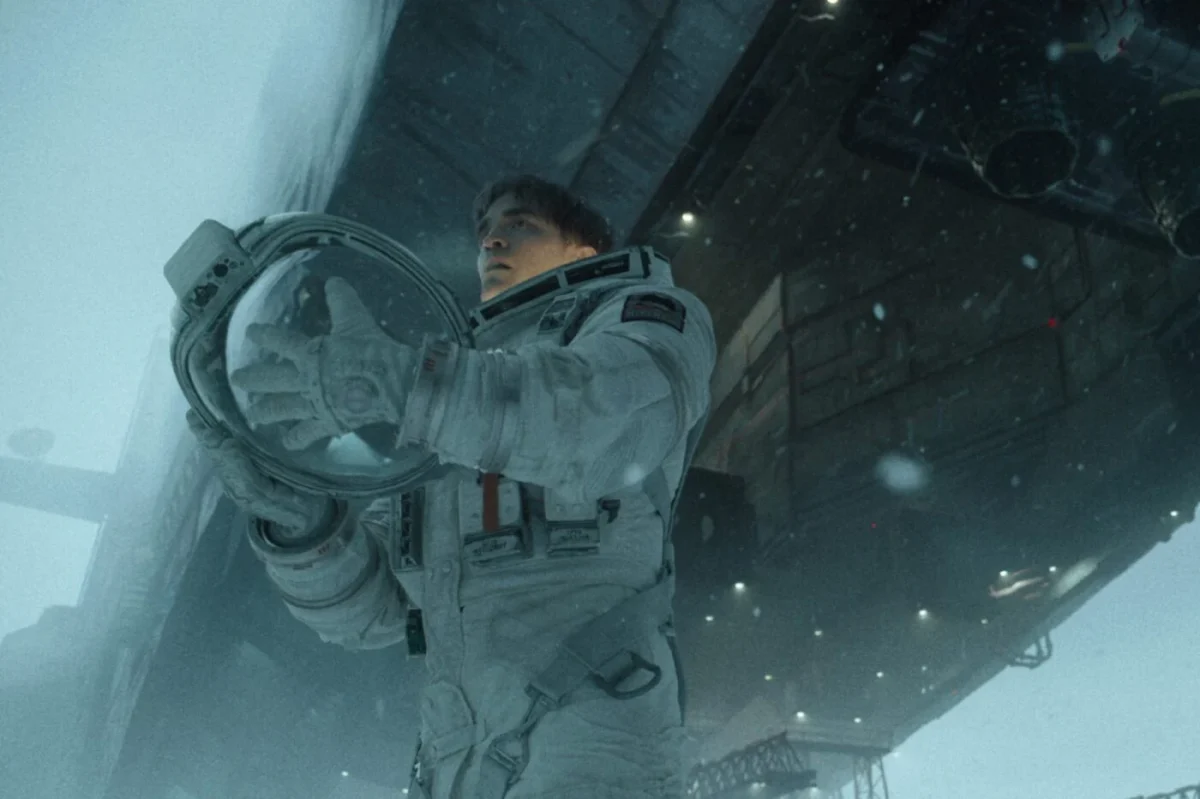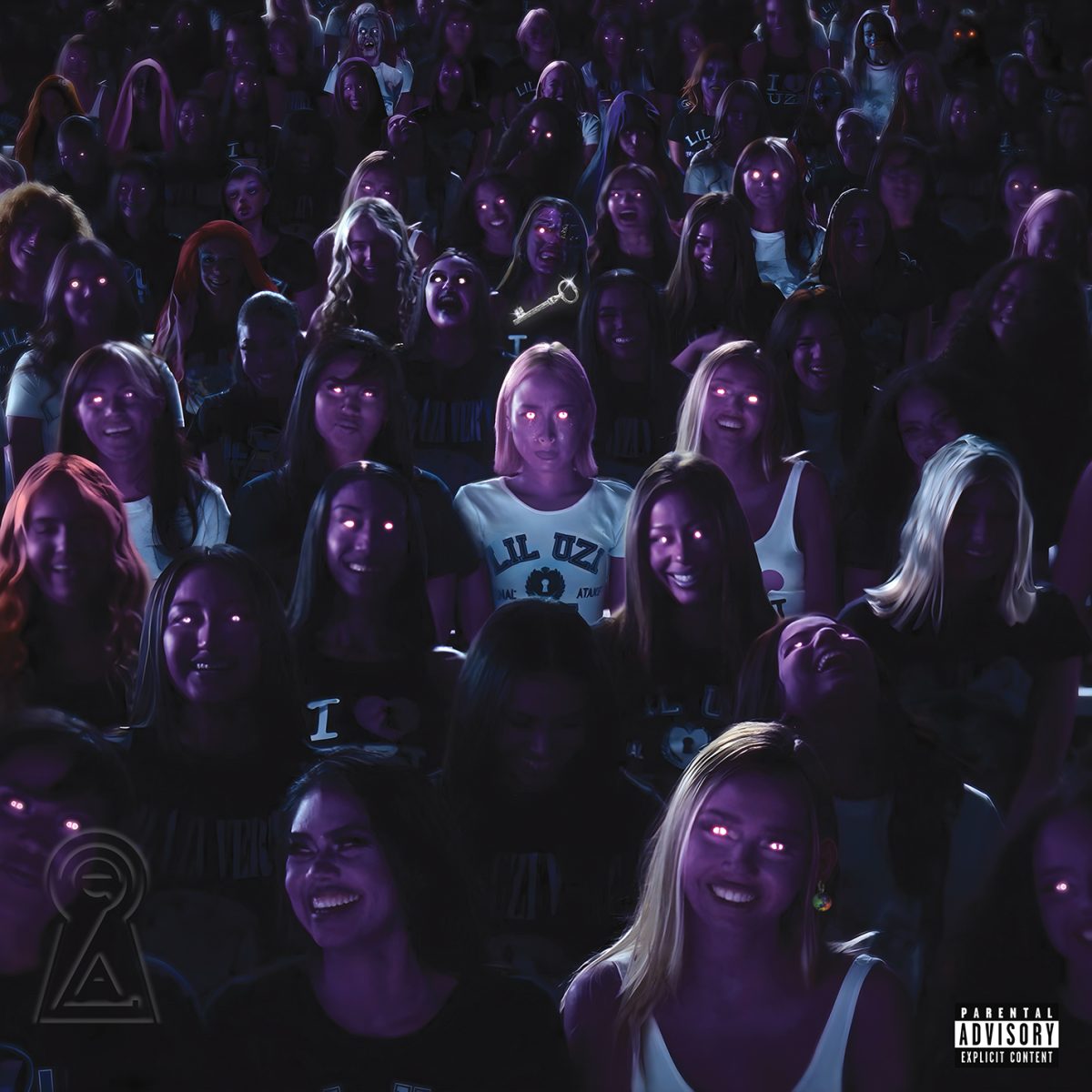After the massive release of Pink Tape in 2023, Philadelphia-raised trap rapper and vocalist Lil Uzi Vert shocked fans with the sudden release of “Eternal Atake 2,” the sequel to “Eternal Atake.”
The first “Eternal Atake” sold 288,000 units in the first week, while this sequel sold only 59,000. Many fans call this their worst album ever, some even deeming it the worst album they have heard this year. Even Yeat, an artist long labeled an “Uzi clone” throughout his career, outsold “Eternal Atake 2” with 89 thousand units on his October album “Lyfestyle.”
The project begins with the underwhelming intro “We Good.” While catchy, nothing about this song stands out when compared to past intros such as “Two”, “Flooded The Face” or “Baby Pluto,” which all felt powerful and fresh. In just the fourth line, Uzi says, “I was on that NOS” introducing a recurring theme throughout the album’s first half. NOS, or nitrous oxide, is a drug that induces short-term euphoria but can also pose significant health risks such as brain damage. Recently, both Kanye West and Uzi have faced criticism from fans for their apparent reliance on NOS, which has a detrimental effect on Uzi’s voice and creative process, giving the music an unintelligible, lethargic quality that detracts from the album’s potential. More troubling is the dangerous message this sends to listeners, as it glorifies substance abuse without addressing the risks involved. This especially disappoints me because when asked about their road to sobriety in an interview with Jazzys World TV, published Nov. 1, 2024, promoting Eternal Atake 2, Uzi tells the 13-year-old interviewer, “The most important thing I learned about myself is really having clarity. And what I mean by that is doing things for yourself, but also doing things because the people around you, you know it’ll affect them.”
The strong second track, “Light Year (Practice),” saves this generic intro and is a fan favorite. Each verse in this song builds on the last, escalating in intensity as Uzi showcases their rapid-fire rapping skills. Despite the pace, Uzi enunciates each word clearly and it feels like they are in their element, showcasing their tight flow and quick delivery.
The hard-hitting second track leads into the much more nitrous-infused third track, “Meteor Man.” This song might be the worst song I have ever heard in Uzi’s entire discography. The track begins with off-beat flows, bad vocals, and badly pitched down vocals that sound like a drugged-out ogre impersonating Ken Carson and Playboi Carti. The track then follows with a chorus of Uzi repeating “This is an aura” for a minute straight, making this song completely insufferable.
“Meteor Man” transitions into another mind-numbing song, “Paars in the Mars”, continuing Uzi’s drugged-out nitrous voice. It sounds like they mixed four different songs in one, without regard to the instrumental they rap over. This song, however, is more catchy, and I can see a unique niche the rapper creates through their experimentalism.
Following this chaotic experimental track is “The Rush (Ft. Big Time Rush),” the final song of the “NOS music” trilogy. Unfortunately, it proves to be another massive disappointment. Rather than featuring Big Time Rush as part of the instrumental, verses, or chorus, the song only includes them talking for a brief 10 seconds in the intro to the song.
Uzi shifts gears in the middle section. This portion includes a few more hard-hitting fast-rap songs similar to “Light Year (Practice),” such as “Chips and Dip” with its old-school vocal effects, and “Lyft Em Up” with its energetic chorus and verses. “Mr. Chow,” my favorite song, features powerful vocals with a catchy chorus, two unique verses, and a triumphant-sounding production reminiscent of a Chief Keef track. Uzi’s flow on this track feels like a refined version of their older Soundcloud style from 2014-2016.
Unfortunately, not every song delivers the same impact. Tracks like “Black Hole,” “Not an Option,” and “She Stank” feel generic and forgettable, adding little to the album’s overall quality. I find it hard to understand why these tracks made the final cut instead of more promising material, given Uzi’s large catalog of unreleased songs.
The final third of the album serves as the standout element keeping this album alive. Uzi tones down from the “druggy” voice and embraces their more calm melodic side. Songs like “Chill Bae” and “Conceited” feature R&B-like vocals along with strong background harmonies, delving into familiar “Uzi-isms” such as feelings of isolation, self-reliance, love and the mental strain of Uzi’s lifestyle. “Perkysex” and “Goddard Song” dive deeper into the problems with their lifestyle, with Uzi confronting their battle with drug addiction and reliance on Percocets in the prior. “Goddard Song” opens with an intro emphasizing the inevitability of online negativity, echoing that putting oneself out there often invites backlash, but staying true to oneself is more important. With unique vocal inflections and deeper messages in the album’s final section, Uzi showcases a raw, heartfelt style that leaves room for growth.
The album’s momentum takes a surprising turn with the final track, “Space High.” This song feels confusing since the melodic mood established by the last few tracks transitions into a groovy fast-paced track. Although this song feels out of place, it is very catchy and has risen in popularity through TikTok and Instagram reels.
The production is one of the biggest things this album lacks compared to past Uzi albums. Rather than collaborating with the iconic producers who helped launch Uzi’s career — Maaly Raw, Forza, and Wondagurl — Uzi opts for lazy mixing and generic beats. They stick to a limited group of producers, including Lil 88 and Brandon Finessin, whose repetitive beats often face criticism, and Cashmere Cat, who produced 11 out of 16 tracks on the album.
Another glaring issue is the lack of second verses. Labeled the “second verse king” by fans, Uzi surprisingly leaves many songs such as “We Good” and “Black Hole” with only a single verse. Other tracks like “She Stank” and the NOS trilogy repeat the same words repeatedly. Throughout my listening, I kept thinking, “That song had so much potential for a great second verse.”
Featuring significant highs and lows, this album feels like riding a rollercoaster while downing an entire bag of Sour Patch Kids. The album feels all over the place, but I still came out of this seeing Uzi as a uniquely distinct artist in their own niche. It is disjointed, but even at its worst, I was much more entertained than I would be listening to 90% of mainstream trap artists who use generic flows, production, and melodies.
While many people wish Uzi would revert to their older sounds, I find hope in the innovation and direction that they take in portions of this album and can see success if they take the time to refine their music. As a feature on famous Twitch streamer Kai Cenat’s live stream, Uzi said, “Sometimes people may not be too happy by the sound, especially my main supporters, but you get new people every day that love you, and you always still come back to feed your main supporters. But you gotta remember how you got here — being innovative. So it would be very crazy for me to be doing exactly what I was doing when I got here.”
Even though this album falls in comparison to Uzi’s past projects, I find many of the songs off this project getting stuck in my head, and I frequently return to many tracks, even weeks later. While I understand the massive hate the album has received, I do not think it is deserved; the album might have a more positive response if listeners gave it a full playthrough — and if Uzi had not labeled it “Eternal Atake 2.” Overall, I rate it a 2.75/5.














![[DEBATES] Prestigious colleges: value or hype?](https://www.mvviewer.org/wp-content/uploads/2024/12/buildings-1200x654.png)































![[OPINION] The dark origins of TikTok's looksmaxxing trend](https://www.mvviewer.org/wp-content/uploads/2024/02/Copy-of-Copy-of-Untitled-Design-1200x675.png)











Chad • Dec 13, 2024 at 12:43 pm
Great article EJ!
mara peacock • Dec 13, 2024 at 10:42 am
excellent work! dare i say elijah easton’s magnum opus